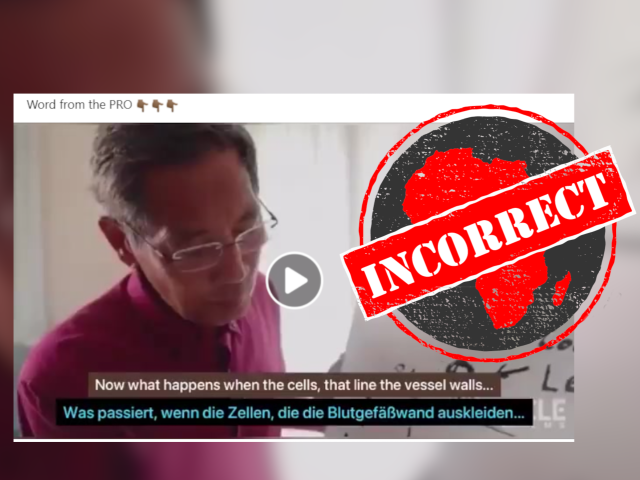“It’s really difficult for fact-checkers across the continent to meet and discuss certain things – Africa Facts is a fantastic platform to share and to learn.” – Africa Facts network member
The Africa Facts network was started by Africa Check, the continent’s first independent fact-checking organisation, in November 2017. The network connects fact-checking organisations and initiatives and provides a space to share experiences and collaborate to fight the spread of false information.
The increasing need for robust and reliable fact-checking on the continent is reflected in the number of new initiatives that have started since the network’s launch. The network is currently made up of 20 organisations from all corners of the continent, from Burkina Faso to Zimbabwe.
To build and strengthen this community of non-partisan fact-checkers, Africa Check hosts an annual in-person gathering, sends out regular newsletters and organises regular online meetings.
In 2021, we spoke with Africa Facts members to understand how the network is supporting individual organisations to start and develop fact-checking in their countries.
Below are some of the most valued ways the network has supported its members to date. Click here to download the full report.
1. Connecting with colleagues in other countries and continents is a key mechanism for staying current with innovations and provides important opportunities to share tools and best practice.
The network has helped to bring together fact-checking organisations across the continent, building a community of like-minded colleagues who share knowledge and best practice relevant to the African context.
“When you have specific problems, it's useful to learn from how other countries have faced it.” – Africa Facts network member
2. Good relationships with authoritative, trustworthy sources and partners who can help verify claims are crucial to a fact-checking organisation’s success.
Africa Facts members value the contacts and sources the network has provided.
Members have collaborated across borders on important topics, such as the Covid-19 pandemic. Drawing on the work of others reduces duplication and reinforces the credibility and impact of fact-checking.
3. Ongoing training helps teams keep up to date with new developments and trends related to false information and its dissemination.
Most fact-checking organisations are lean operations, with a small team of staff often supported by volunteers and consultants. All the organisations interviewed said ongoing training is important, but added that there is limited time and internal capacity for it, meaning that training often takes place on the job.
The Africa Facts network’s ongoing skills development and training provide opportunities for members to build expertise and capacity within their teams, while also learning with peers in other countries.
4. Fact-checking organisations work hard to convey to audiences their non-partisanship and independence, both intellectual and financial, in order to build trust.
The network has also provided guidance on how to get funding for their fact-checking work, including how to negotiate with funders while maintaining independence and neutrality.
The report proposes the following recommendations for how the Africa Facts network can support organisations in future:
-
Encourage the establishment of a fact-checking organisation in every country on the continent (where it is possible to do so), and consider how the network can support members in countries where media freedom is restricted.
-
Explore more ways to connect organisations for knowledge exchange.
-
Help its members to cultivate collaborations and partnerships with other media organisations, and guide them through the process of becoming signatories of the International Fact-Checking Network (IFCN).
-
Continue to highlight and share members’ work, experiment with different platforms, and explore strategies to engage young people.
If you are interested in fact-checking or you are a journalist looking to start a fact-checking desk within your media organisation, please get in touch with Carina van Wyk ([email protected]) to learn more about the network.
Charlotte Xiaou Wu is an experienced researcher and writer with a strong academic background in the social sciences and over 7 years' professional experience delivering consultancy, reporting and impact management services for clients in the public, third and private sectors.



Add new comment